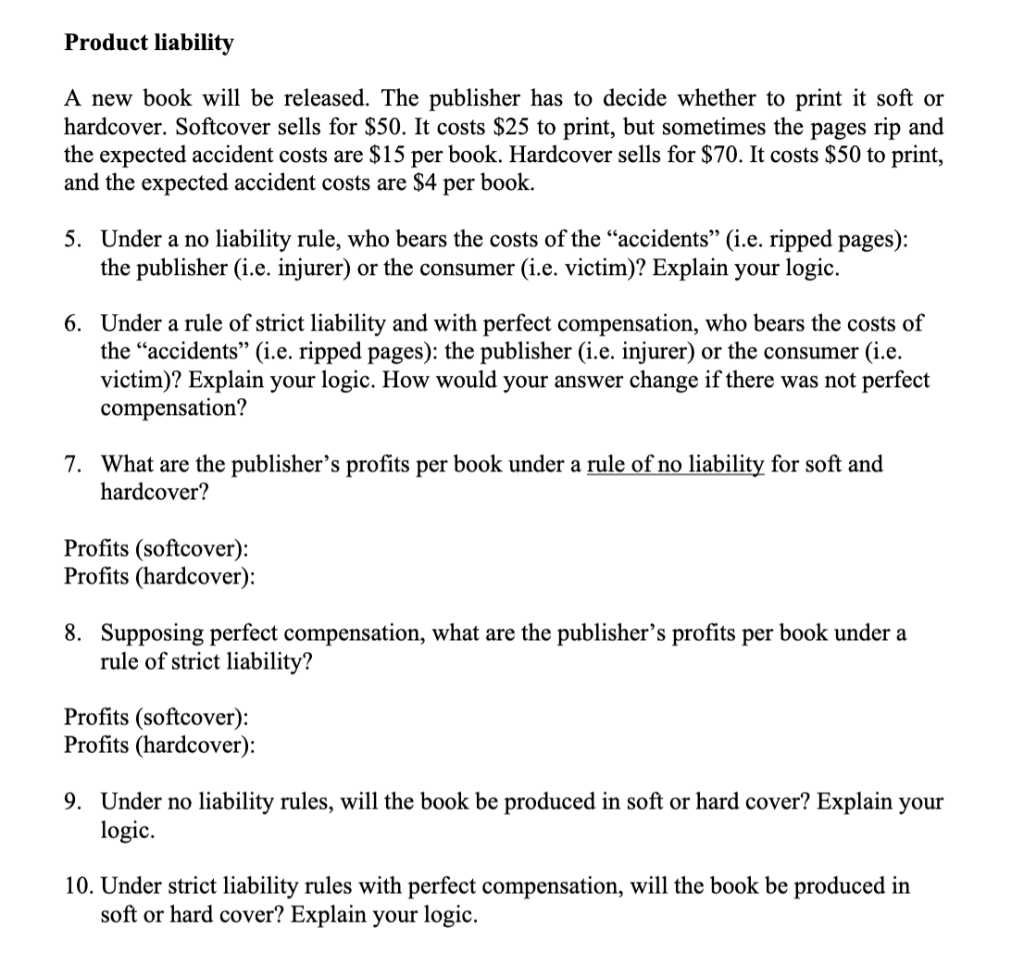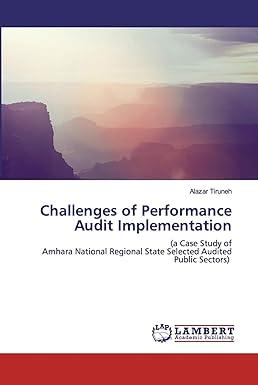Answered step by step
Verified Expert Solution
Question
1 Approved Answer
Please answer all questions 5-10 Product liability A new book will be released. The publisher has to decide whether to print it soft or hardcover.

Please answer all questions 5-10
Product liability A new book will be released. The publisher has to decide whether to print it soft or hardcover. Softcover sells for $50. It costs $25 to print, but sometimes the pages rip and the expected accident costs are $15 per book. Hardcover sells for $70. It costs $50 to print, and the expected accident costs are $4 per book. 5. Under a no liability rule, who bears the costs of the "accidents" (i.e. ripped pages): the publisher (i.e. injurer) or the consumer (i.e. victim)? Explain your logic. 6. Under a rule of strict liability and with perfect compensation, who bears the costs of the "accidents" (i.e. ripped pages): the publisher (i.e. injurer) or the consumer (i.e. victim)? Explain your logic. How would your answer change if there was not perfect compensation? 7. What are the publisher's profits per book under a rule of no liability for soft and hardcover? Profits (softcover): Profits (hardcover): 8. Supposing perfect compensation, what are the publisher's profits per book under a rule of strict liability? Profits (softcover): Profits (hardcover): 9. Under no liability rules, will the book be produced in soft or hard cover? Explain your logic. 10. Under strict liability rules with perfect compensation, will the book be produced in soft or hard cover? Explain your logic. Product liability A new book will be released. The publisher has to decide whether to print it soft or hardcover. Softcover sells for $50. It costs $25 to print, but sometimes the pages rip and the expected accident costs are $15 per book. Hardcover sells for $70. It costs $50 to print, and the expected accident costs are $4 per book. 5. Under a no liability rule, who bears the costs of the "accidents" (i.e. ripped pages): the publisher (i.e. injurer) or the consumer (i.e. victim)? Explain your logic. 6. Under a rule of strict liability and with perfect compensation, who bears the costs of the "accidents" (i.e. ripped pages): the publisher (i.e. injurer) or the consumer (i.e. victim)? Explain your logic. How would your answer change if there was not perfect compensation? 7. What are the publisher's profits per book under a rule of no liability for soft and hardcover? Profits (softcover): Profits (hardcover): 8. Supposing perfect compensation, what are the publisher's profits per book under a rule of strict liability? Profits (softcover): Profits (hardcover): 9. Under no liability rules, will the book be produced in soft or hard cover? Explain your logic. 10. Under strict liability rules with perfect compensation, will the book be produced in soft or hard cover? Explain your logicStep by Step Solution
There are 3 Steps involved in it
Step: 1

Get Instant Access to Expert-Tailored Solutions
See step-by-step solutions with expert insights and AI powered tools for academic success
Step: 2

Step: 3

Ace Your Homework with AI
Get the answers you need in no time with our AI-driven, step-by-step assistance
Get Started


